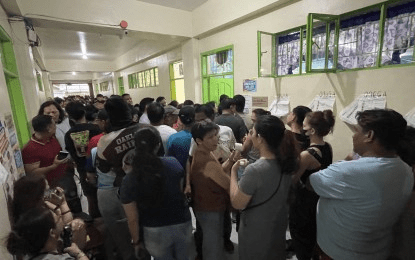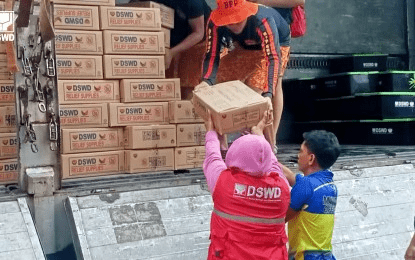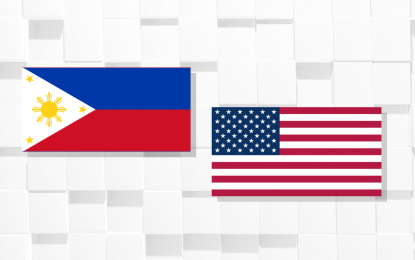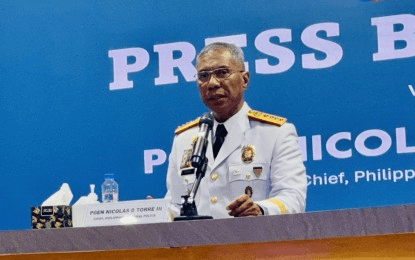By Benjamin Pulta
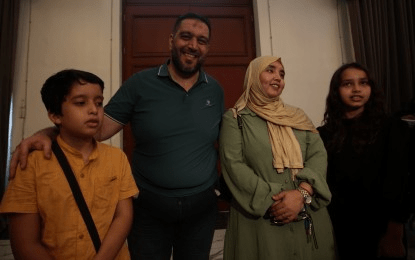
MANILA – In commemoration of the second National Refugee Day, Philippine officials on Tuesday said the country will stand by its enduring tradition of welcoming qualified persons of concern, such as refugees, asylum seekers, and stateless persons.
In a news release, the Department of Justice (DOJ), through its Refugees and Stateless Persons Protection Unit (DOJ-RSPPU), underscored its humanitarian tradition of open doors and steadfast commitment to strengthening inclusive and protective spaces for refugees, asylum seekers, and stateless persons and those at risk of statelessness in the Philippines.
Secretary Jesus Crispin Remulla urged government offices and key stakeholders “to lead with empathy and action”.
“This work has not been easy — but we do it not only because our legal framework dictates it but because our conscience demands it. Let us remember: the plight of refugees is a global challenge that calls upon key stakeholders to lead with empathy and action,” he said.
Chief State Counsel Dennis Arvin Chan, head of the DOJ-RSPPU, said the celebration of National Refugee Day is the product of the dialogue, collaboration, and support from partners in various government offices, the private sector, the international community, and civil society.
“We continue to welcome this partnership because we know that this is not a solitary endeavor,” Chan said.
Presidential Communications Office Assistant Secretary Aristotle Valera noted that the Philippines has always provided a home for refugees and that the need for collective action has never been more urgent.
“This humanitarian legacy reflects our core Filipino values – that of hospitality and kindness to those in need. Let it not be said that we closed the door to those who sought our help,” he said.
Meanwhile, the United Nations High Commissioner for Refugees (UNHCR) expressed continued support for the Philippines in upholding international commitments and advancing durable solutions.
“We commend the Philippine Government for its strong leadership in protecting people affected by forced displacement and statelessness. Its focus on resilience and community-driven solutions reflects the spirit of our mission and the State’s commitment to its Global Refugee Forum pledges, the 2030 Agenda of leaving no one behind, and the Sustainable Development Goals (SDGs), especially SDG 3 on ensuring healthy lives and promoting well-being for all at all ages,” said UNHCR Philippines Head of National Office Maria Ermina Valdeavilla-Gallardo.
Norielyn Tabag, Director for the San Beda University’s Community Engagement Center, urged all academic institutions in the Philippines to continue this humanitarian tradition of opening doors and join the efforts to enhance and expand the access of refugees to education and other protective services that will allow refugees to have the opportunity to become productive members of society.
Meanwhile, Syrian national Abdulkarim Al-Halabi, a recognized refugee and now entrepreneur, shared that while the refugee determination process was long, he never experienced negativity from the community ever since he came into the country in 2011 to seek refuge.
He expressed gratitude to the humanitarian assistance extended to him by the Philippines, which he now calls his home.
National Refugee Day was established by Presidential Proclamation No. 265, s.2023, declaring June 20 of every year as a national observance to recognize and strengthen the Philippines’ humanitarian tradition.
As a State Party to the 1951 Refugee Convention and its 1967 Protocol, as well as the 1954 and 1961 Statelessness Conventions, the Philippines remains committed to ensuring protection, inclusion, and opportunities for all forcibly displaced, stateless, and at-risk-of-statelessness individuals.
This year’s celebration, themed “Strengthening Spaces of Resilience and Hope,” brings together government agencies, international organizations, the academe, civil society organizations, and displaced communities to highlight collaborative approaches to protection, integration, and empowerment. (PNA)

